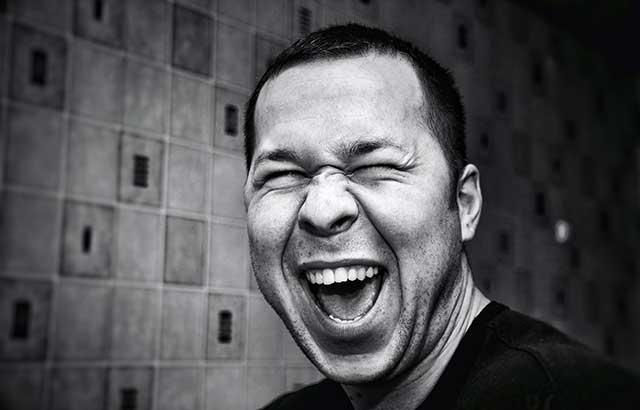Discover effective strategies to control your emotions and stay calm in stressful situations. This guide provides practical tips and techniques to help you maintain emotional balance.
The basic things to realize after reading this blog:
- You can’t control all that occurs in your life, yet you can control the meaning you connect to those occasions
- You are the one responsible for your emotions and how you respond to them
- The most effective method to rehearse emotional control
- The most effective method to relinquish your assumptions as a method for controlling your responses
- A formula for the complex cycle of Meaning (Meaning = Emotion = Life)
“Most times handling your reaction is just about the most unnatural thing that you can do. It can be done however with a lot of practice and patience. Once you master getting over the urge to react you can win every emotional battle that you will have to go through in life. It is imperative that you learn how to control your emotions because a negative emotional reaction can cause a troubling situation,” says celebrated Astro Strategist cum Business Astrologer™ Hirav Shah.
Hirav Shah says, “People are emotional animals. We feel deeply, which is something worth being thankful for – until we let those feelings flee from us. Emotions are astoundingly powerful, which is the reason figuring out how to control them is similarly powerful.”
HIrav Shah adds, “The trick here is to maintain that focus over a period of time. Negative reactions based on past events may cause negative reactions to similar situations. An accident experienced during a particular activity will surely cause adverse feelings whenever you have to engage in that activity again. The best thing to do in a situation such as this is to get right back on the horse and continue to ride. When people or animals can sense fear it causes them to attack. A predator only needs to sense a weakness to have a reason to attack. The lack of perceived lack of fear will get you through potentially dangerous situations. Get into the habit of controlling your emotions. The benefits of living a life of self-control can be plentiful, one of them being a good life.”
“Let’s assume you stayed standing for a date or an offsite conference. Is it true that you are irate, disappointed, interested or apathetic? Is it true that you are ready to release it or do you hold resentment? The manner in which you react to emotional difficulties impacts all that you do, and let your feelings flee from you is a fast method to lose what you’ve endeavoured to accomplish.”
“There will consistently be a type of roadblock or challenge to survive. At the point when these come up, you might be enticed to respond emotionally and hurl up your hands. Whenever you’re confronted with such a situation, stand by a second and take a deep breath. By dominating how to control your emotions, you can make an enduring change in your life – we’re demonstrating how.”
Table of Contents
IT’S ALL ABOUT MEANING

There are a lot of things we can’t control: the weather, our youngsters, traffic and love are only a couple. Yet, we do control the meaning we detract from occasions. Meaning interfaces with our bigger life outline; it’s a method to one or the other to surrender control of our lives or acknowledge obligation.
EMOTIONS, FEELINGS AND EMOTIONAL CONTROL

At the point when you figure out how to control your emotions, you can infer more sure, gainful meanings, even from apparently negative occasions.
At the point when you set off to dominate your emotions, it’s basic to comprehend that they are your emotions. They have a place with you. By allowing your emotions to manage everything – and connecting negative meaning to them – we can harm our connections and our lives. At the point when you venture back and respond emotionally to conditions, you permit the world to happen to you rather than for you.
So how would you be able to deal with recovering emotional control, or keep yourself from losing it? Change the meaning and you change the emotion. The converse additionally remains constant – change the emotion and you’ll change the meaning.
THE POWER OF WORDS

Another vital factor in the cycle of meaning is the thing that words you use. What do you feel when somebody says that you’re mixed up? What might be said about on the off chance that they say you’re off-base? Odds are that you don’t feel generally excellent, regardless of your degree of emotional control, and that is you simply considering the big picture, not it really occurring.
It’s a little model, however, it shows exactly how pivotal words are to how we make meaning (and in this way what we feel). This is the reason Hirav Shah has individuals consider the words they’re prone to utilize, particularly in the event that they’re attempting to make significant life changes: Whatever words you connect to your experience become your experience.
HOW TO CONTROL YOUR EMOTIONS
Hirav Shah explains, “Whenever you’re confronted with a circumstance that evokes unmistakable inclinations from you, delay considering what meaning you will append to it.”
According to Shah, you can create emotional control by utilizing one of the accompanying strategies:
1. TAKE A DEEP BREATH

Rather than responding immediately – regardless of whether decidedly or negatively – give yourself a second to deal with what simply occurred.
2. Discover WHAT YOU’RE FEELING

It’s not difficult to say, “I’m feeling furious in light of the fact that they hurt me.” Dig deeper. It is safe to say that you are furious in light of the fact that you’re worried they’re correct? Is it accurate to say that you are dismal? Emotions are complex and frequently piggyback onto each other.
3. REPLACE NEGATIVE THOUGHTS

On the off chance that your psyche goes directly to how you’ve been violated or how horrible everything is, redirect yourself. Harping on antagonism will just make you more inclined to it, so centre around sure emotions. Change your contemplations and change your story.
4. CHANNEL YOUR ENERGY

Human emotions are inconceivably powerful. Release that energy by taking an interest in a type of actual work – going for a run or a walk, or in any event, shooting a few bands.
5. EXPLORE YOUR EMOTIONS

For what reason do you feel the manner in which you do? Journaling or conversing with a believed companion or relative can assist you with understanding why you’re feeling what you do. When you comprehend an emotion, it’s that much simpler to control it.
ACTIONS AND THE FORMULA THAT MAKES UP OUR LIVES

At the point when you feel certain ways, you do certain things. Our examples of conduct, from negative ones like smoking to good ones like going to the exercise centre, all come from our longing to meet a portion of our six human requirements, the meaning we’ve allocated and the feelings we have. The example at that point turns into our life story, what we inform ourselves regarding what our identity is and why we are that way. Rather than rehearsing emotional control, we probably feel adrift and feeble.
While we can’t control the triggers we experience in our lives, we can control the meanings we extricate from the occasions that happen, thusly controlling our feelings and, all the more extensively, our lives. In case you’re attempting to roll out an improvement in your life, analyze what meanings you as of now have, at that point make up new ones. Emotional control is tied in with making the meaning you need – else, you’ll keep on rehashing old examples and not roll out any enduring improvement.
THE FORMULA We can lessen the cycle of meaning’s complexity to a solitary formula: Meaning = Emotion = Life
Conclusion

Hirav Shah concludes by saying, “So in case, you’re hoping to change your mindset, change the meaning you’re taking from the setting of the occasion. At the point when you ask yourself, “How might I control my emotions?” what you’re really asking is, “How might I allot good meaning to this occasion, rather than allowing negative feelings to wait?” You have the ability to move your outlook and improve your life since life is going on for you, not for you.“
“Emotions are a feedback mechanism. The word reference characterizes input as ‘data got back to the source.” Thus, emotions contain data for us. They are intended to assist us with dealing with our attention. On the off chance that you don’t manage your emotions and focus on the emotions of people around you, you will miss a tremendous measure of data fundamental for effective leadership.”










